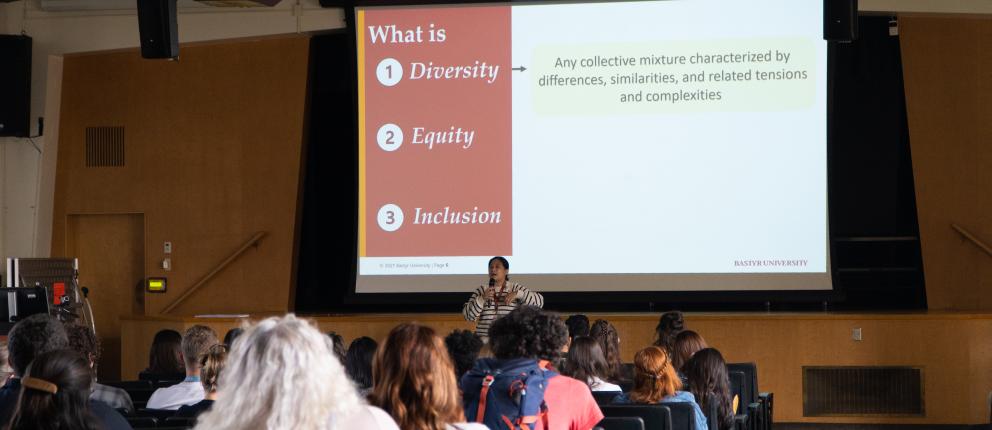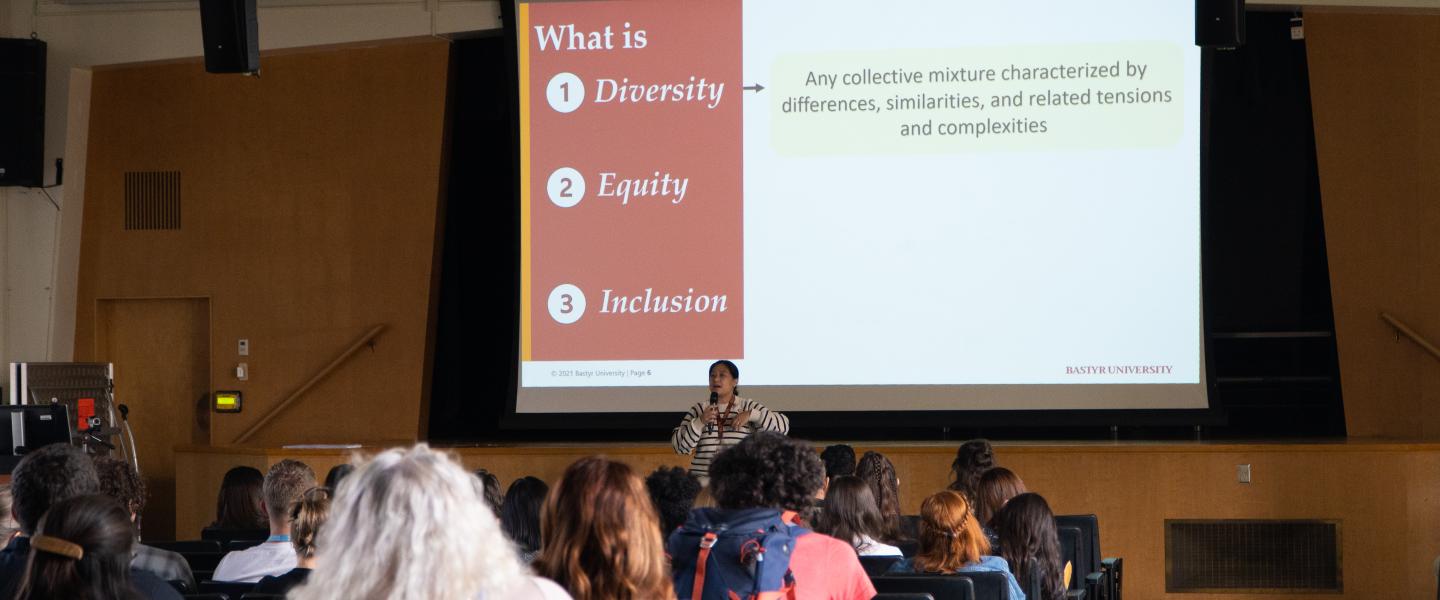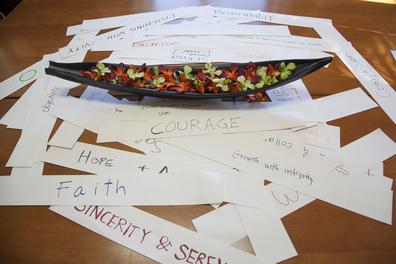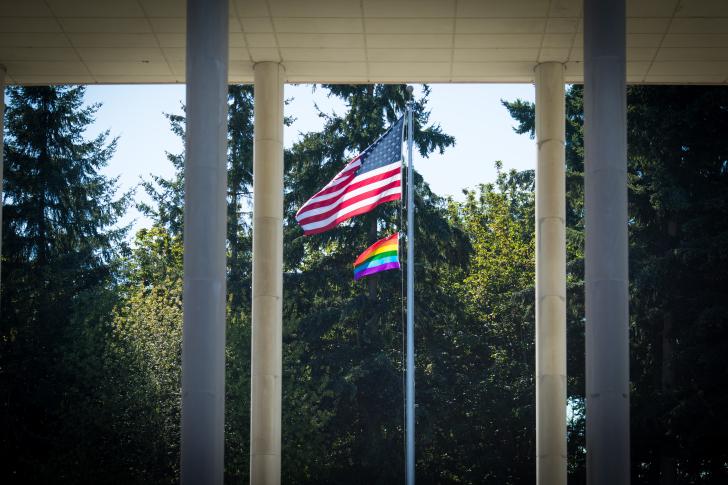DEI at Bastyr
Bastyr University is committed to building a diverse, inclusive, equitable, and engaged academic community that values social justice, cultivates a culture of belonging, and advances health and education equity through our institutional structures, policies, practices, programs, services, and partnerships.
- Social Justice
- Inclusion and Belonging
- Community Engagement
- Health and Education Equity
Bastyr University believes that inclusive diversity is essential for achieving academic excellence and creating a profoundly enriching university experience. Our faculty and staff are committed to achieving our mission by educating students to be future leaders that bring the natural health arts and sciences to people from all backgrounds. As such, Bastyr University promotes an educational environment that allows students, faculty, and staff to develop their interests and talents while experiencing a sense of community created through a commitment to diversity, equity, and inclusion. Therefore, the University expects faculty, staff, and students to engage in respectful communication and behaviors. This requires all campus members to advance their intercultural and social justice awareness by engaging in thoughtful self-reflection, increasing their understanding of one's own and other cultures, and including and empowering those who are disenfranchised, marginalized, or oppressed. To accomplish this, campus members are expected to develop effective interpersonal and intrapersonal skills such as active listening, respectful conflict resolution, compassion, thoughtfulness, and integrity, an attitude of curiosity and humility, and openness to the productive discomfort that comes along with personal growth.
As an institution of higher learning committed to educating future leaders in the natural health arts and sciences that integrate mind, body, spirit, and nature, Bastyr University humbly believes that it is our responsibility to remind current and future generations of the respect we owe to the Indigenous peoples who have been dispossessed of their land and displaced from their ancestral and spiritual homes through colonization. We acknowledge that the lands on which Bastyr University campuses stand, and on which we study, work, and live today, are the original and contemporary homes of many Indigenous peoples whose spiritual connections to these lands forms the foundations of their ways of being. Specifically, the university is situated on the traditional and ancestral lands of the Coast Salish (SAY-lish) people in Kenmore and Seattle, WA, and the traditional and ancestral lands of the Kumeyaay (KOOM-e-yi) people in San Diego, CA.
We recognize and esteem the values, vast knowledge, and collective wisdom of these Nations from the past and present. We honor their resiliency as we recognize the history of oppression, racism, and extreme hardship that has and continues to affect the Indigenous peoples of these lands.
We understand that land acknowledgement is only a first step in honoring the contributions of Indigenous peoples today and continue to strive towards policies and practices that bring about justice and reconciliation. We, the Bastyr University community, strive to be stewards of the lands on which the institution stands, and to embrace Indigenous ways of knowing through our Sacred Seeds Program in Washington, herbal gardens, and other initiatives that promote equal opportunity and access in education and health care.
We are grateful to be on these lands and for the people that stewarded it. We commit to manifesting our intentions as one Bastyr community.
Bastyr University does not discriminate against any person in matters of employment, application for employment, student or applicant for admission, or participation in our programs or benefits on the basis of the following protected classes: ancestry, gender, gender identity, or expression, sexual orientation, race, creed, color, religion (includes religious dress and grooming practices), sex (includes pregnancy, childbirth, breastfeeding and/or related medical conditions), ethnic or national origin (includes language use and possession of a driver’s license issued to persons unable to prove their presence in the United States is authorized under federal law), age (40 and above), disability (mental and physical, including HIV and AIDS), marital status, genetic information, medical condition (genetic characteristics, cancer or a record or history of cancer), veteran or military status or any other protected category under applicable local, state or federal law.
This policy covers nondiscrimination in access to educational opportunities. Therefore, any member of the campus community who acts to deny, deprive or limit the educational, access, benefits and/or opportunities of any member of the campus community, guest or visitor on the basis of their actual or perceived membership in the protected classes listed above is in violation of the University policy on nondiscrimination. Non-members of the campus community who engage in discriminatory actions within University/College programs or on University/College property are not under the jurisdiction of this policy, but can be subject to actions that limit their access and/or involvement with University programs as the result of their misconduct. All vendors serving the University through third-party contracts are subject by those contracts to the policies and procedures or their employers.
Contact
Danielle Ung and Baljit Khamba
Co-chairs of the DEI Advisory Council







